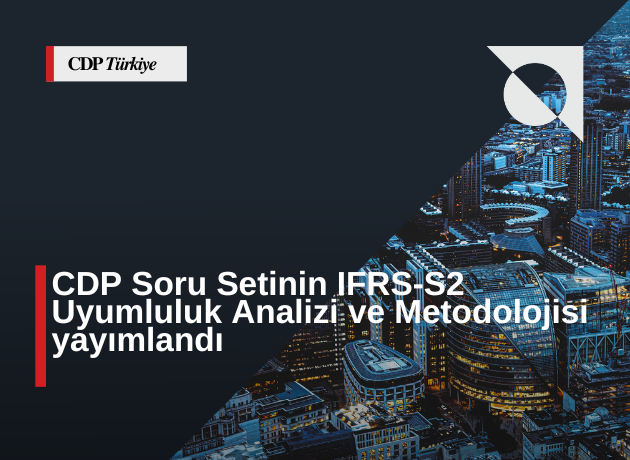
Submitted by sude.figen on August 14, 2025
Türkiye’s and the World’s Alignment with Global Reporting Standards
The year 2024 provided the first comprehensive dataset that clearly demonstrates, on a global scale, the readiness level of companies to conduct climate reporting aligned with the IFRS S2 standard. This analysis covers responses from 11,456 companies across 106 countries, representing 55% of global market capitalization. Findings show that 83% of companies worldwide answered at least 80% of the IFRS S2-aligned questions included in the CDP questionnaire. Only a small segment (4%) responded to less than half of these questions, while 9% of companies answered all IFRS S2-aligned questions in full, indicating complete readiness for regulatory requirements.
Looking at the global picture by content areas:
Governance** has the highest response rate: 85% of companies answered all related questions.
Risk Management** demonstrates strong performance; 58% provided full responses, while 27% answered less than half of the questions.
Climate-related Metrics** is the weakest area: only 25% provided full responses.
Strategy and Climate Resilience** show relatively low response rates; in particular, half of the companies answered less than half of the questions on climate scenario analysis.
These data indicate that, while the alignment process with IFRS S2 has progressed substantially worldwide, gaps in data and processes remain in some critical areas.
Türkiye’s Situation
While CDP’s 2024 questionnaire was fully aligned with the International Sustainability Standards Board’s (ISSB) IFRS S2 standard, it also achieved a high level of convergence with the ESRS climate module E1. This development has enabled companies in Türkiye reporting to CDP to be better prepared for the increasing global regulatory demands and has supported alignment with both the EU’s CSRD requirements and the newly enacted Türkiye Sustainability Reporting Standards (TSRS).
As of 2024, the alignment level of responses from Türkiye to CDP is as follows:
* FRS S2 Alignment Rate: 80%** — indicating significant progress in key areas such as climate governance, emissions accounting, and financial risk management.
* ESRS Alignment Rate: 68%** (excluding sector-specific questions) — highlighting the need for more comprehensive integration in areas such as double materiality, value chain transparency, and biodiversity.
Overall, while companies in Türkiye have a strong foundation for climate reporting under IFRS S2, meeting the broader data requirements of ESRS will require enhanced value chain-wide data collection, more effective management of Scope 3 emissions, and stronger integration of nature-related elements into governance structures and strategic plans.





